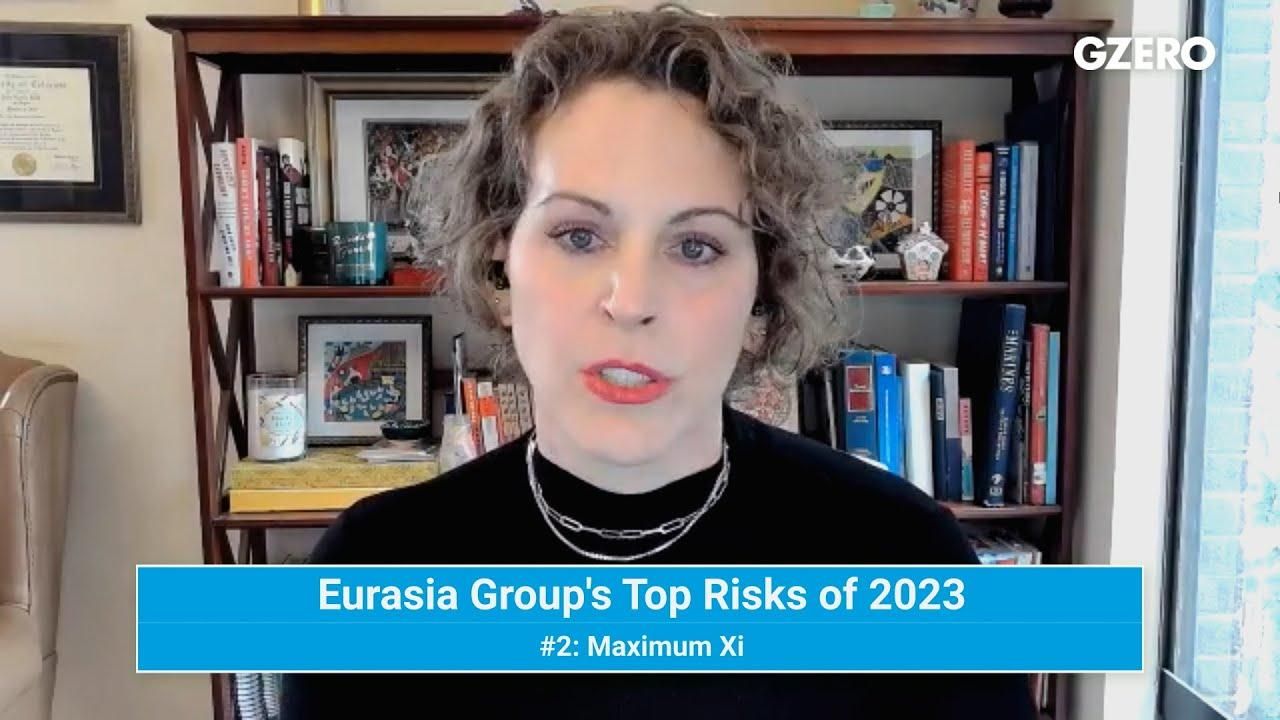If Xi Jinping had a theme song in China right now, for Eurasia Group analyst Anna Ashton it would be Canadian rapper Drake's "0 to 100." That's pretty much how fast he reversed course on zero-COVID.
And that explains why "Maximum Xi" — one man with total control over China — is Eurasia Group's No. 2 geopolitical risk for 2023.
The risk basically boils down to "maximum impunity and maximum potential mistakes," Ashton noted in a GZERO Live conversation about Eurasia Group's Top Risks 2023 report. In other words, China's leader is so powerful he won't be blamed for anything, even if he messes up badly.
Xi, she adds, is in a very strong position and Western media narratives that he was in trouble following protests over zero-COVID were overblown.
The US and China are moving into creating separate economic worlds for each other. And that won't be easy because the two economies are more closely linked than most people understand.
Read Eurasia Group's Top Risks 2023 report here.
Watch the full live conversation: Top Risks 2023: A rogue Russia and autocrats threatening the world
- The Graphic Truth: China's old vs. new zero-COVID ›
- Ian Bremmer: Zero COVID no longer works, and China will pay a price ›
- What We’re Watching: China's zero-COVID shift, Russia's fertilizer deal, Ramaphosa's corruption probe, EU's oil wrangling ›
- What We're Watching: China losing on zero-COVID, "winning" in Taiwan ›
More For You
In this Quick Take, Ian Bremmer addresses the killing of Alex Pretti at a protest in Minneapolis, calling it “a tipping point” in America’s increasingly volatile politics.
Most Popular
Who decides the boundaries for artificial intelligence, and how do governments ensure public trust? Speaking at the 2026 World Economic Forum in Davos, Arancha González Laya, Dean of the Paris School of International Affairs and former Foreign Minister of Spain, emphasized the importance of clear regulations to maintain trust in technology.
Will AI change the balance of power in the world? At the 2026 World Economic Forum in Davos, Ian Bremmer addresses how artificial intelligence could redefine global politics, human behavior, and societal stability.
Ian Bremmer sits down with Finland’s President Alexander Stubb and the IMF’s Kristalina Georgieva on the sidelines of the World Economic Forum to discuss President Trump’s Greenland threats, the state of the global economy, and the future of the transatlantic relationship.
